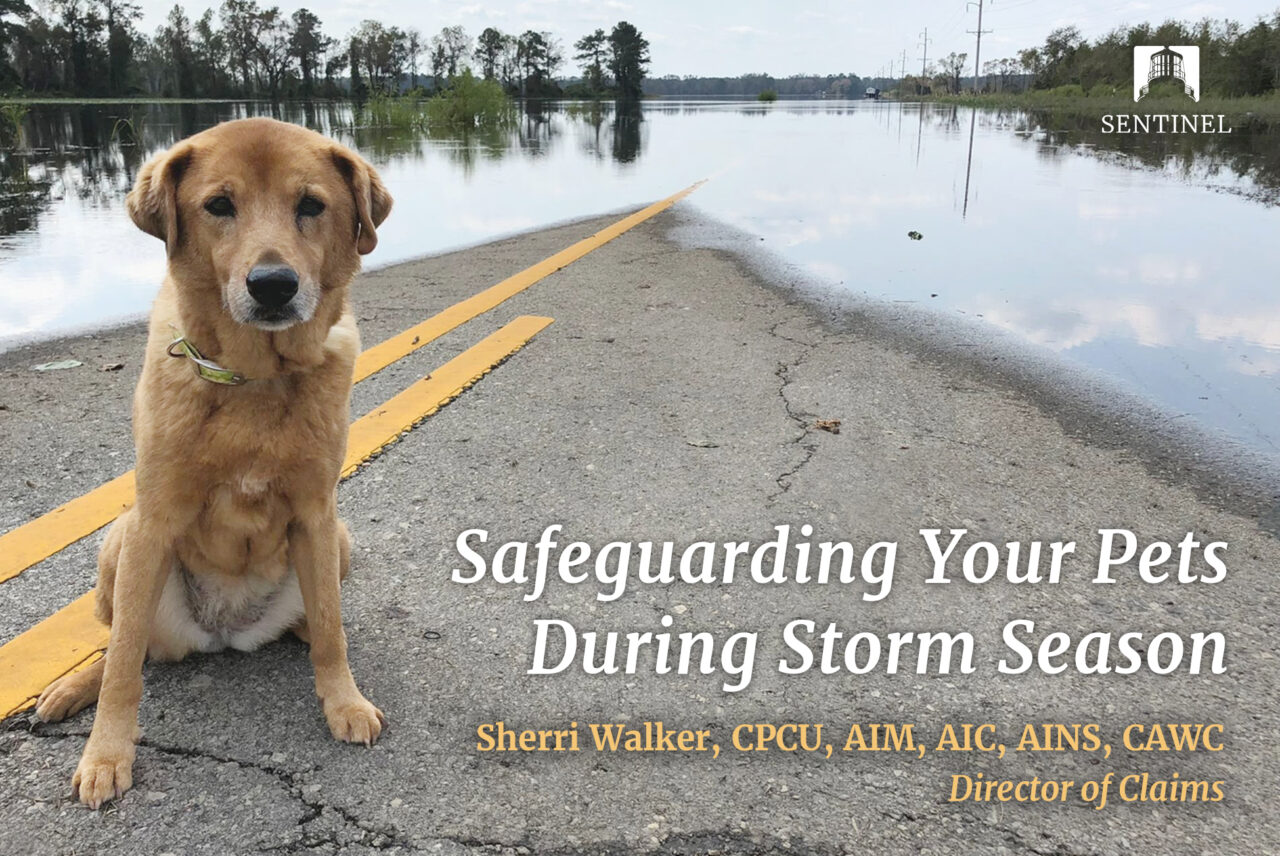Every year during storm season, we review important preparations to make ahead of time to keep our family members safe. We’ve offered guidance on preparing resources and storm kits, speaking to children about severe weather, and creating a safe space and evacuation plan for households. But there are other members of the family that are much harder to prepare and safeguard – our beloved pets.
Protecting Our Furry Friends
As a pet lover and owner of an extremely dramatic and anxious pup, I’m no stranger to watching the weather and the calendar. If there is a chance for fireworks or storms, I know what to expect and can plan accordingly. But what happens when a seemingly minor storm turns into a catastrophe? The events in Western North Carolina from Hurricane Helene are a prime example. What was assumed to simply be rains turned into a significant disaster, leading to major consequences for the furriest of our family members.
While so much attention is focused (rightfully so) on the human toll that hurricanes, wildfires, floods, and earthquakes bring, often there’s a major toll on pets and wildlife that goes without acknowledgment. Behind every news story and aerial shot of wreckage, there are countless stories of animals lost, displaced, injured, and in urgent need of help. Pets may be separated from their families, wildlife may lose their natural habitats, and unfortunately, livestock often has to be abandoned in an evacuation, because while you can lead a horse to water, it’s not always as easy to lead one out of it during a flood. The physical and emotional implications for animals can be devastating, and often even when rescued, these animals may need rehabilitation to help overcome their fear and stress from these events.
Thankfully, there are many organizations and resources that are available to help – many local animal rescue and foster groups will create shelters and resources to help reunite pets with their owners. Advances in micro-chipping and GPS tracking collars have helped with these efforts. There is a huge peace of mind with knowing we have the technology to help reconnect with our fur babies if separated. Wildlife rehabilitation centers also work to treat injured animals and release them back to the wild when the dust settles, which can be as important for our eco-systems as much as for the animals themselves.
How To Prepare
When creating your evacuation and emergency plans, make sure you include your pets. This means adding additional food and water to your storm kit, adding in an extra leash and collar with your information attached, and if you have an animal that is best crated for traveling, keep that crate handy with your other emergency supplies.
If you want to help other animals, consider donating food and other essential pet items to your local shelters. Further, volunteering or fostering in recovery efforts is always appreciated, because every animal deserves the best chance at survival, reunification with family, or adoption for those who sadly lose their families.
While disasters impact all of us, we can do our best to keep our most vulnerable family members safe as well. Doing so protects not only our faithful companions but also our own emotional well-being and our ecosystems as well. We want to protect what matters most to you, both your two- and four-legged family members.
Don’t forget to check out our Sentinel Storm Center for more resources ahead of the upcoming storm season.


